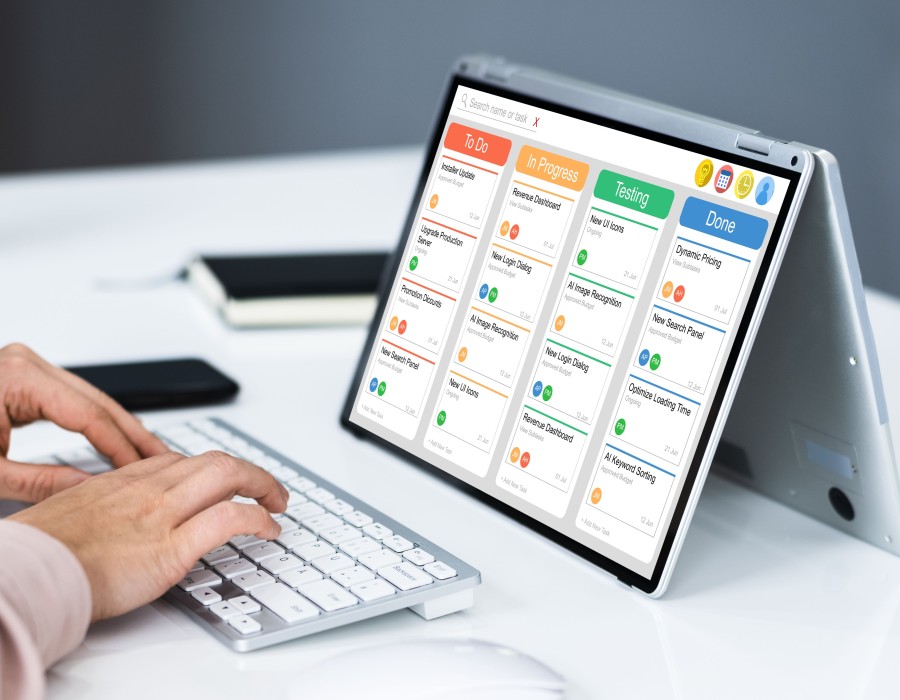Exploring Mobile App Development Costs and Features for HOA Management Software

In recent years, the use of mobile applications has become integral to various industries, providing efficient solutions to streamline tasks and processes. One such industry that has greatly benefited from mobile app technology is Homeowners' Association (HOA) management. HOAs play a pivotal role in maintaining and managing residential communities, and the adoption of mobile apps has revolutionized how these associations function. This article delves into the world of mobile app development for HOA management software, examining the associated costs and essential features that drive its effectiveness.
The Rise of Mobile Apps in HOA Management
Homeowners' Associations are responsible for overseeing and maintaining the common areas, amenities, and facilities within a residential community. This involves managing finances, communicating with residents, coordinating maintenance activities, and enforcing community rules. Traditionally, these tasks were handled manually or through desktop software, which often led to inefficiencies and communication gaps.
The emergence of mobile apps in HOA management has transformed the way associations operate. Mobile apps offer the convenience of real-time communication, instant access to information, and the ability to perform tasks on the go. They empower residents to engage actively in the community and enable HOA managers to streamline operations efficiently.
Key Features of HOA Management Mobile Apps
Effective HOA management mobile apps are built with a comprehensive set of features that cater to the unique needs of these associations. Some essential features include:
1. Resident Communication
Mobile apps facilitate seamless communication between HOA management and residents. They allow for announcements, event notifications, and real-time updates to be sent directly to residents' devices. Two-way communication enables residents to report issues, ask questions, and participate in community discussions.
2. Online Payments and Financial Management
Mobile apps enable residents to pay their association dues, fines, and fees conveniently through secure online payment systems. Moreover, these apps provide financial management tools that allow HOA administrators to track payments, generate financial reports, and manage budgets.
3. Maintenance Requests
Residents can submit maintenance requests through the app, detailing the issue and attaching photos. HOA managers can then prioritize and assign tasks to maintenance staff, streamlining the process and ensuring prompt resolution.
4. Document Access
Important community documents, such as bylaws, rules and regulations, meeting minutes, and architectural guidelines, can be accessed through the app. This central repository ensures that residents and board members can easily reference essential information.
5. Event Management
HOA events and activities can be organized and promoted through the app, allowing residents to RSVP, view event details, and receive reminders. This feature fosters community engagement and enhances the sense of belonging.
6. Security and Access Control
Mobile apps can integrate with access control systems, enabling residents to grant access to visitors or service providers remotely. This enhances security while providing convenience.
7. Voting and Surveys
For community decisions and policy changes, mobile apps offer voting and survey capabilities. This streamlines the decision-making process and ensures that all residents' voices are heard.
Factors Affecting Development Costs
The cost of developing a mobile app for HOA management can vary significantly based on several factors:
1. Platform (iOS, Android, or Both)
Deciding whether to develop the app for iOS, Android, or both platforms affects development costs. Each platform has its development requirements, which can impact the time and resources needed.
2. Features and Complexity
The number and complexity of features play a significant role in determining costs. Basic apps with essential features will cost less than apps with advanced functionalities like integration with external systems or sophisticated reporting tools.
3. Design and User Experience
A user-friendly interface and intuitive design are crucial for the success of any mobile app. Investing in user experience (UX) design can impact both development time and costs.
4. Customization and Integration
HOA management apps often need to integrate with existing systems like accounting software or access control systems. The level of customization and integration required can influence costs.
5. Development Team
The size and expertise of the development team working on the app will impact costs. Hiring experienced developers and designers may result in higher upfront expenses but can lead to a more polished and efficient app.
6. Maintenance and Updates
Post-launch maintenance and updates are ongoing costs to consider. These ensure that the app remains compatible with new operating system versions, devices, and security protocols.
The Benefits Outweigh the Costs
While the development of a comprehensive HOA management mobile app entails costs, the benefits it offers to both HOA administrators and residents far outweigh the initial investment:
1. Enhanced Efficiency
Mobile apps streamline operations, reducing administrative workload and enabling tasks to be completed more efficiently. This allows HOA managers to focus on strategic decision-making.
2. Improved Communication
Real-time communication fosters transparency and community engagement. Mobile apps provide a direct channel for residents to stay informed and voice their concerns.
3. Time and Resource Savings
Tasks that previously required manual labor can now be automated through the app. This saves time and resources for both residents and HOA staff.
4. Community Engagement
Mobile apps encourage residents to actively participate in community events, discussions, and decision-making processes. This sense of involvement strengthens the community fabric.
5. Remote Accessibility
HOA managers and residents can access important information and perform tasks from anywhere, reducing the need for physical presence.
6. Data-Driven Insights
Advanced reporting and analytics features within the app provide valuable insights into community trends, preferences, and needs. This data can inform future decisions.
Conclusion
The evolution of mobile app technology has brought about transformative changes in the way Homeowners' Associations manage their communities. The convenience, efficiency, and engagement that mobile apps offer are invaluable to both HOA administrators and residents. By considering factors such as platform, features, design, and development team expertise, HOAs can make informed decisions about app development costs. As the benefits continue to outweigh the initial investment, mobile app development for HOA Management Software remains a worthy endeavor in fostering thriving residential communities.
Created by: maddy smithkelly
Recommended





Comments